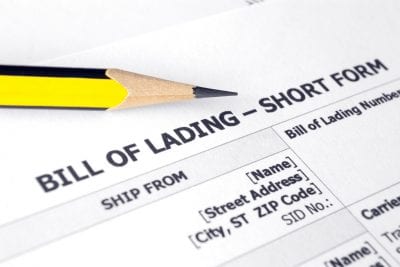A Bill of Lading is one of the most important documents in the world of freight shipping. However, it’s still confusing for many companies and shippers to understand a BOL’s meaning and what role it plays in the transportation process.
What is the Bill of Lading?
A Bill of Lading (BOL) is a legitimate document that involves a shipper of certain freight and a carrier, who is responsible for transporting goods. The document is issued by the carrier (or transportation company) to the shipper and states the type, quantity, and destination of the goods being carried.
Why do you need the bill of lading (BOL)?
Imagine boarding a plane without a ticket. It’s not happening either way, and a BOL plays the same role in freight transportation. It serves multiple purposes, and here are the most important of them:
- A receipt for the shipment
- A contract between a freight carrier and a shipper
- A document of title
In the case of freight loss or damage, having accurate information in your BOL will boost claim processing and raise the chances to find the cargo. Providing correct information is essential to complete a Bill of Lading. Neglecting to do so puts you at risk of experiencing delays and unwanted headaches.
What is in BOL?
As the most important record in the shipping process, the Bill of Lading essentially includes a lot of important information. Basically, it answers every what, where, and who of the freight.
BOL form includes:
- Shipper’s name and address
- Receiver’s/consignee’s name and address
- Purchase order numbers or special account numbers used for order tracking
- Special instructions
- Date of the shipment
- Number of units being shipped
- Type of packaging
- Note if the shipment contains hazardous material
- Description of items
- The NMFC freight classification
- The exact weight of the shipment
- The declared value of the goods being shipped
Final thoughts
No matter if you are a large corporation, a small business, or an individual shipper, if you have to ship cargo, chances are you’ll deal with the Bill of Lading. And, essentially you have to understand the BOL meaning, and know how to complete the form. Completing it is not as scary and complex as it seems, just make sure you provide correct information.

